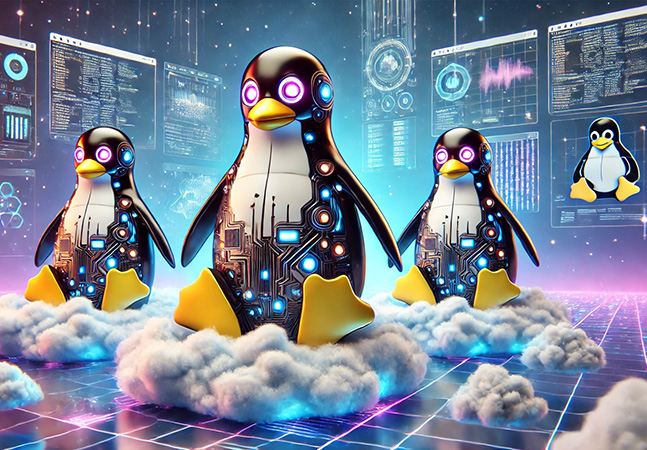
While Linux is the OS of choice for many AI researchers and practitioners, Windows has been getting a lot more Gen AI functionality thanks to Microsoft's huge investment into OpenAI, but there are signs of an AI surge in the open-source OS space.

A twisty, years-long brouhaha centered around open-source licensing has taken another turn, with an Amazon Web Services (AWS) project based on Elasticsearch being turned over to a new group under the direction of the Linux Foundation.

"Our latest collaboration with CrowdStrike allows customers to bring their own (BYO) cyber threat intelligence."

This proposed rule from the department's Bureau of Industry and Security aims to enhance national security by establishing reporting requirements for the development of advanced AI models and computing clusters.

GitHub data released same day cloud giant CEO predicts a possible future where "most developers are not coding."

"Continuous verification of identities and permissions, coupled with designing systems that limit the potential impact of issues, is crucial."

Effectively, Azure OpenAI is catching up to AI offerings from the other cloud giants, AWS and Google Cloud.

In quickly changing market, Veeam leads the execution axis and Rubrik leads the vision axis.

Adversarial testing with red/black teams is nothing new in cybersecurity, but a new paper examines how advanced AI can help and provides recommendations for organizations to do just that.

The top cybersecurity threat in the cloudscape has changed from a couple years ago says a new report from the Cloud Security Alliance (CSA), which provided handy mitigation strategies and suggested AI can help (or hurt).

Data management/governance specialist AvePoint announced the general availability of Cloud Backup Express, designed to use the new Microsoft 365 Backup Storage service recently made available for third-party integrations.

On the same day that Microsoft shipped a new Microsoft 365 Backup Storage service for third-party integrations, launch partner Veeam announced just such integration with its Veeam Data Cloud for Microsoft 365.

Copilot AI assistants are changing Microsoft from the inside out, company CEO Satya Nadella revealed in an earnings call yesterday.

After recently placing AI in the "trough of disillusionment" on its Hype Cycle report, research firm Gartner has doubled down on its negativity, predicting massive abandonment of AI projects.

Stack Overflow is out with its massive annual survey that investigates all things developer-related, and this year's edition shows Amazon Web Services (AWS) as the most popular cloud platform among developers -- except for those learning to code.

Nearly alone among the tech giants, Meta is still championing open-source foundational AI models as the way forward for AI development, with CEO Mark Zuckerberg pointing to the history of Unix and Linux as an example to follow.

Domo, known for its 'Data Never Sleeps' infographics, turns its attention to the relentless onslaught of AI.

Many vendors have sought to capitalize on the November 2023 acquisition of VMware by Broadcom that resulted in controversy and disgruntled customers, and they continue today.

Google open sourced a platform for AI agents to take care of project maintenance shortly after announcing its latest/greatest open foundation model, Gemma 2, and boosting the Project IDX app-dev workspace amid a blitz of AI initiatives.

Google unveiled a new AI-powered video creation service as part of its Workspace Labs program where users can try out new AI features.